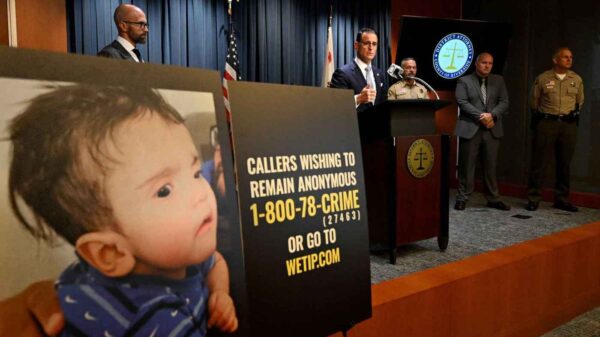URGENT UPDATE: A mother is urgently addressing her daughter’s alarming emotional withdrawal following the COVID-19 pandemic, revealing a troubling trend affecting countless families. Reports indicate that the pandemic has exacerbated mental health issues in children, with a significant rise in cases of anxiety and depression.
In the wake of the pandemic’s challenges, new data shows that up to 40% of adolescents are experiencing increased levels of distress. This alarming statistic underscores the immediate relevance of addressing mental health in young people today. The mother, who prefers to remain anonymous, describes her daughter’s sudden withdrawal as a “dark forest” from which she struggles to emerge.
The mother first noticed changes in her daughter’s behavior in August 2023, just months after schools reopened. “She used to be so vibrant and engaging, but now she just sits in her room for hours,” the mother shared. This emotional distance is not just a personal struggle but reflects a broader societal issue. Experts emphasize that many children are facing similar crises, as the pandemic has stripped away social interactions crucial for their development.
Mental health professionals warn that the psychological impacts of the pandemic may linger long after lockdowns have ended. Dr. Emily Johnson, a child psychologist, states, “We are witnessing a mental health crisis among children that requires immediate attention and resources.” She urges parents to seek help early and to foster open conversations about emotions with their children.
Local communities are taking action to combat this growing concern. Various support groups and mental health resources have emerged, aiming to provide assistance to families grappling with similar issues. In a recent community meeting held on September 15, 2023, parents and mental health advocates gathered to discuss strategies for supporting children’s emotional well-being. “We need to create safe spaces for our kids to express their feelings and fears,” said Mark Stevens, a local community leader.
As the situation develops, it’s crucial for parents to remain vigilant about their children’s mental health. Experts recommend engaging children in conversations about their feelings and encouraging them to participate in social activities, even if they are virtual.
What happens next? Families are urged to seek professional help if they notice signs of emotional distress in their children. Schools are also being called upon to implement programs that focus on mental health awareness and support for students as they navigate the lingering impact of the pandemic.
The emotional toll of this crisis is profound, and it’s a stark reminder of the importance of mental health awareness in our communities. As more families share their stories, it becomes increasingly clear that collective action is needed to support the youth facing these unprecedented challenges.
Stay informed on this developing story, as we continue to track the impact of COVID-19 on mental health and the measures being taken to address these urgent needs.































































